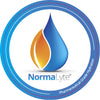Surviving Spring Break Road Trips with Dysautonomia

Surviving Spring Break Road Trips with Dysautonomia

Spring break is around the corner. For college students, that week of relaxation in March or April is desperately needed. That is, if you’re the kind who uses it to rest. For people with chronic illness and forms of dysautonomia it’s probably not on your agenda to be as wild as the spring breakers of yesterday on MTV. Often it just means you might be traveling back home or to visit family and friends. Flying can be expensive. So this time around you’ve decided to drive.
You can survive a road trip during spring break when you have dysautonomia. The key to surviving is just as the boy scout motto says, “Be prepared.”
PACK A SURVIVAL BAG
No, we don’t mean a bug out bag. Consider it a POTS/EDS/dysautonomia survival bag. Make sure your meds are all accounted for, pack a couple boxes of NormaLyte (or your favorite ORS), extra compression stockings, hand warmers, salty snacks, and maybe a favorite blanket. Keep this bag within reach.
BRING A FRIEND
Some people with chronic illness can drive on their own, but many cannot. Ask a friend to join you and have them do the bulk of the driving. This is especially important if you are prone to syncope (fainting).
GET A GOOD NIGHT'S REST
The night before you leave for a road trip you may find it hard to sleep. Plus, we all know that insomnia is a dysautonomia patient's unwelcome friend. Try your best to get as much sleep and rest as possible the day before you leave for your road trip.
COMPRESSION SOCKS OR LEGGINGS
These are likely a daily part of your wardrobe by now. Make sure you’re wearing a new pair while on a road trip. It will help prevent blood pooling in your legs.
GET MOVING
Speaking of blood pooling, another way to prevent that is to get moving. Do stretches in the seated position to get your body moving. This will prevent blood pooling in your arms and legs. Moving your ankles in circular motions will force blood flow back up. Another idea is to prop your legs up when you’re able. Propping your legs in the front seat can be unsafe so you may consider riding in the backseat, if possible, to prop them up there.
STAY HYDRATED
Electrolytes are your best friend. Not all electrolyte drinks are created equal and we often see people mistakenly believing their preferred electrolyte is going to give them the hydration they need. People with chronic illnesses are often also chronically dehydrated. Choosing a medical grade electrolyte drink that uses the WHOs formula for oral rehydration will let you see a difference in how you feel after long road trips. NormaLyte is a good choice as it was formulated for people with dysautonomia and it uses the WHOs formula for oral rehydration.
KNOW YOUR LIMITS
Listen to your body and anticipate your symptoms. If you’re spending too much time on the road, pull over and take a break from driving. Listen to your hunger and make sure you’re getting an adequate amount of food. It’s okay to stop mid way to your destination and rest in a hotel before starting again. Or, if you’re balling on a budget, take a neck pillow and try to get some sleep while a friend is driving.
What about when you get to your destination?
Travel takes a lot out of everyone. Even an olympic gold medalist can get fatigued and dehydrated when they’re traveling. Give your body some grace and follow these tips:
Plan a day of rest. Or, at minimum, a half day of rest. The first day you arrive you may feel like you want to jump into action. Your excitement has been brewing, we get it. But planning rest into your vacation will make a difference in how you feel during and the weeks afterward.
Keep an itinerary. It doesn’t have to be strict, but it can help you know what to expect as the week progresses.
Skip the alcohol. Spring break is often associated with parties, but for someone with a chronic illness it’s often not worth it. It’s not the hangover you feel - it’s the flares alcohol can cause as it wreaks havoc on your body and causes you to become more dehydrated. If you choose to imbibe, be sure you’re pairing it with a NormaLyte electrolyte replacement afterwards.

The most important takeaway is this: Spring break is for everyone. Even if you have a chronic illness that can make it a challenge to get out and have fun, it’s a challenge you won’t regret. A poet in the 1800s, Ralph Waldo Emerson said, “All life is an experiment. The more experiments you make, the better.”











Leave a comment